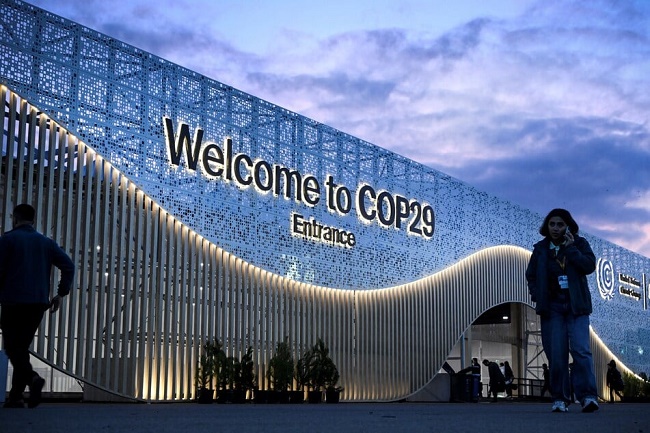Greenpeace Africa has expressed disappointment with the outcomes of the New Collective Quantified Goal (NCQG) on climate finance unveiled at COP29, citing insufficient ambition to address the continent’s pressing climate needs.

While the text acknowledges the scale of required funding – estimated at $5-6.8 trillion until 2030 – it lacks concrete mechanisms and desired political commitment to deliver this financing.
Fred Njehu, Pan-African Political Strategist at Greenpeace Africa, stated: “The latest NCQG document is a missed opportunity to decisively make polluters pay for the destruction they have caused and falls short of expectations from developed countries. While the principle of ‘polluter pays’ is mentioned, there are no enforceable mechanisms to ensure that fossil fuel corporations contribute to climate action. The voices of 10,000 Africans who signed our petition demand real action, not just acknowledgements, bracketed texts and unagreed options without actual figures.”
The NCQG highlights the need for grant-based climate finance and acknowledges systemic barriers to access, including debt burdens and high capital costs. However, the scale of commitments remains unclear, leaving vulnerable communities at risk.
Dr. Lamfu Yengong, Forest Campaigner at Greenpeace Africa, emphasised: “African communities are on the frontlines of the climate crisis, yet the ambition on climate finance commitments is inadequate. Without clear targets and mechanisms to mobilise trillions annually in non-debt-inducing finance, the adaptation finance gap will continue to grow. This is unacceptable, given the dire climate impacts already faced across the continent.”
Greenpeace Africa welcomed some positive aspects of the NCQG, such as:
• Provisions for grant-based financing for adaptation and loss and damage, especially for least-developed countries (LDCs) and small island developing states (SIDS).
• Recognition of the need to address systemic inequities in accessing climate finance.
• Promoting renewable energy as a cornerstone of the global energy transition.
• Reducing investment flows towards fossil fuel infrastructure, inefficient fossil fuel subsidies which do not address energy poverty and just transitions repurposed in line with the 1.5°C pathway.
Greenpeace Africa calls for immediate revision of the NCQG text to include stronger commitments on fossil fuel phase-out, concrete polluter-pay mechanisms, and guaranteed climate finance that reaches vulnerable communities.
